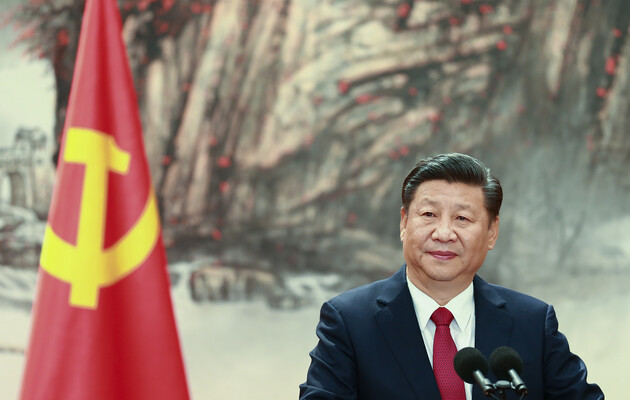The official Chinese narrative is that the US responds to problems with military methods while China uses dialogue, and there are signs that this claim is persuasive for some.

Xi Jinping returns to Beijing after his first trip to Russia since the beginning of its war against Ukraine. The conflicting forces that dominate the Chinese leader's relations with Moscow have not disappeared. Xi Jinping wants to be a strong ally of Vladimir Putin and at the same time a global peacemaker. But this is impossible.
The Guardian writes about this, recalling that the Chinese leader was greeted in Moscow with red carpets, a brass band and Siberian salmon. Xi Jinping and Putin raised their glasses for “deepening Russian-Chinese partnership”. In addition to shared political and economic interests, relations between the countries are characterized by an unusual level of personal ties between Xi Jinping and Putin. The Chinese leader called the Russian president his “best friend”, adding that they have similar personalities. Temur Umarov, a researcher at the Carnegie Endowment for International Peace, called such relations “strategic fraternization”.
The depth of personal relations only strengthens China's assertion that the war in Ukraine cannot lead to regime change in the Kremlin. And such a result, according to analysts, is possible if the war ends on Ukrainian terms. Personal relationships are one of the reasons why Xi Jinping's claims to be a peacemaker in the conflict are largely rejected.
On the first anniversary of the Russian invasion, the Chinese leader published a 12-point peace plan, which allegedly describes a way out of the crisis in Ukraine. However, it does not say that Ukrainian territorial sovereignty must be respected. In addition, the document blames NATO for allegedly provoking the war.
“The Russian side welcomes China's willingness to play a positive role in the political and diplomatic settlement of the Ukrainian crisis, as well as the constructive proposals described in the Chinese Position on Political Settlement of the Ukrainian crisis,” said the joint official statement of Xi and Putin on March 21.
Read also: NYT: What did Xi Jinping and Putin agree on in Moscow?
“Putin has been so positive about the Chinese peace proposal that this peace proposal cannot be implemented. To find something acceptable to both sides, China needs to become a sincere, honest mediator, which it is not,” said Steve Tsang, director of the China Institute at the London School of Oriental and African Studies.
There were rumors that Xi Jinping would call Ukrainian President Volodymyr Zelenskyi during his visit to Russia. Such a conversation would be at least some hint of the Chinese leader's claim that he is a neutral mediator. But nothing happened. Zelensky welcomed the opportunity to talk with Xi Jinping. And their conversation can still happen. On Monday, the official newspaper of the Communist Party “Rhenmin Zhibao” for the first time since October 2022 mentioned the Ukrainian president by name. This may be an attempt to send a signal to the domestic audience that the lines of communication between Xi Jinping and Zelensky are still open.
Because although the leader of China no longer believes that he will be able to convince the West of his neutral attitude to the war in Ukraine, at home and in the “Global South” he is still building the image of a global statesman. The official Chinese narrative is that the US responds to problems with military methods, while China uses dialogue. China can point to the recent restoration of diplomatic relations between Saudi Arabia and Iran, facilitated by Beijing, as evidence. On Wednesday, US Secretary of State Anthony Blinken played down Chinese interference, saying Riyadh and Tehran were already working in that direction.
However, The Guardian notes: There are signs that China's narrative is working. Last week, rebel groups in Myanmar asked China for help in resolving the conflict that has been ongoing in the country since 2021.
Read also: Putin expected more: ISW summarizes the results of Xi Jinping's visit to Moscow
p>
“But Xi Jinping's most important audience is the one at home. After three years of a zero-tolerance policy on COVID, which caused widespread economic pain and social discontent, Xi is now trying to strengthen China's position on the world stage,” the publication writes.
In 2018, Xi Jinping violated the country's restrictions and became the leader of China for the third time. This has not happened since the time of Mao Zedong.
Related video
“Therefore, this is the year when we should expect him to leave a bigger mark. Since he messed up with the economy at home, he is trying to make up for it in the field of foreign policy, which is somewhat easier to do,” Tsang explained.


